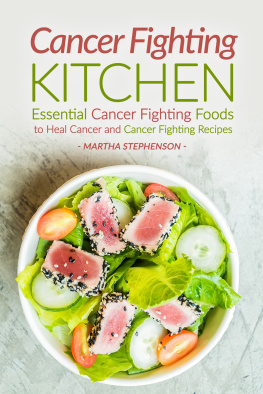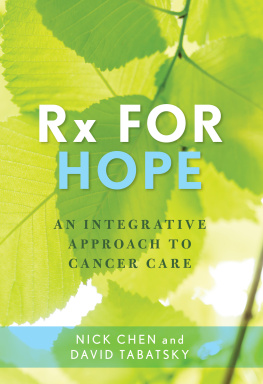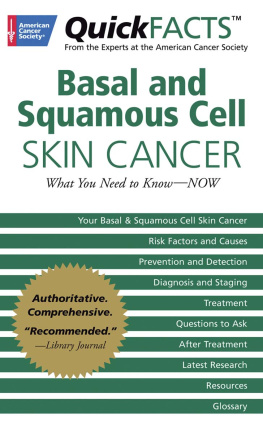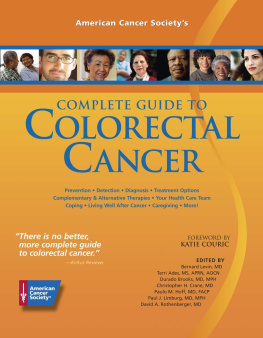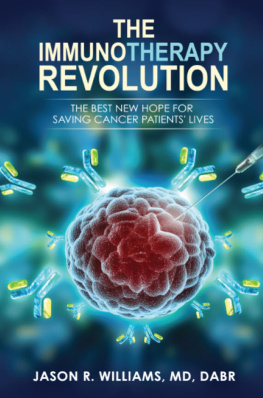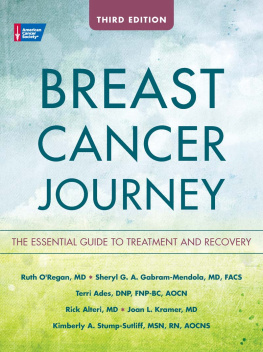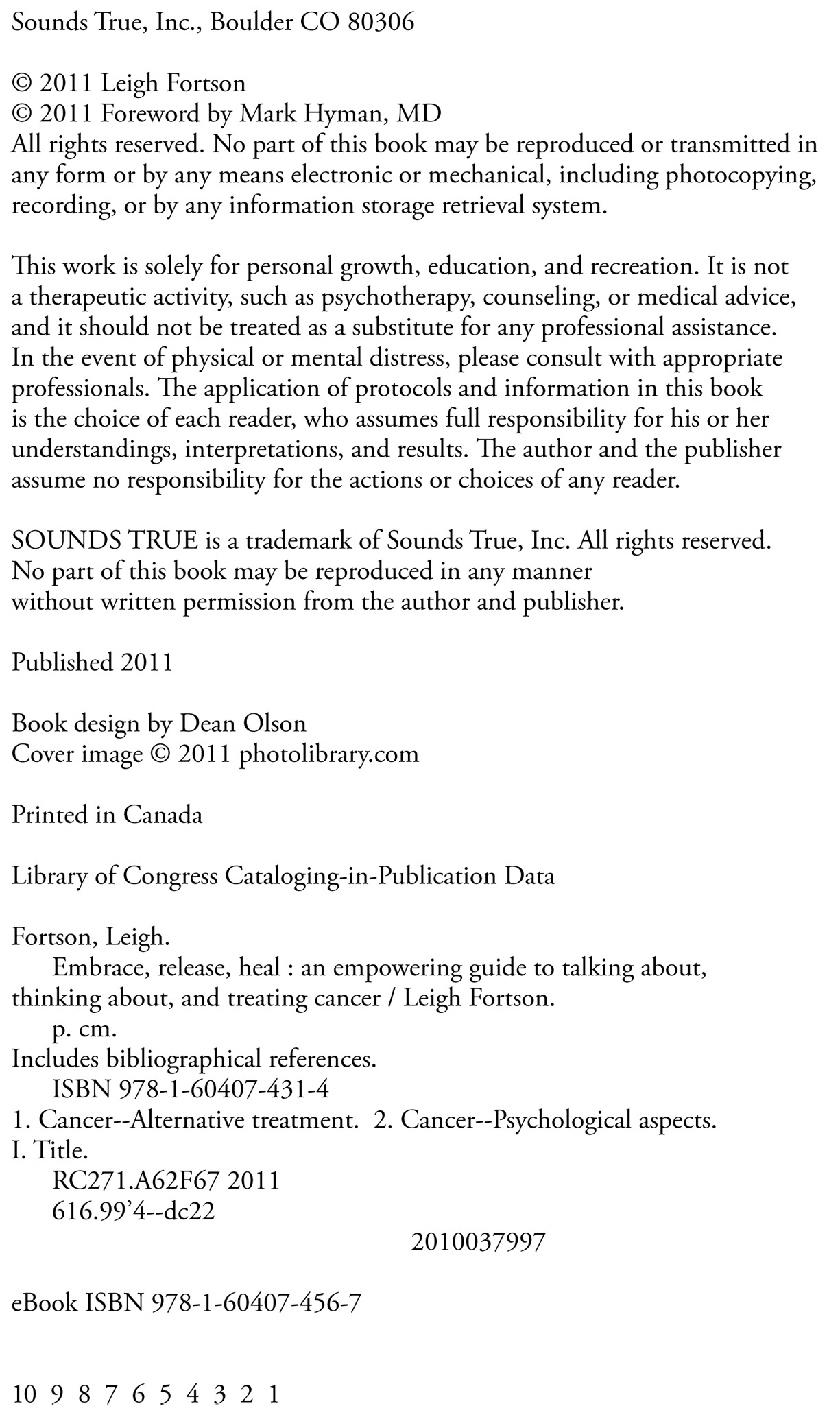
Praise for Embrace, Release, Heal
Leigh Fortson has journeyed through territory where many will eventually gothe land of cancer. She has returned a very wise woman whose insights will empower anyone with this diagnosis. The stories and interviews in Embrace, Release, Heal are full of hope and meaning. I hope this inspiring book is widely read.
Larry Dossey, MD, author of
The Science of Premonitions
America badly needs to expand its perspective on how to treat people with cancer. Limiting treatment to killing cancer cells without nurturing the person is like spraying roses without making sure that the soil they grow in contains the nutrients they require in order to thrive. Embrace, Release, Heal expands that perspective in a very personal, moving, and expert way. A must read if you or someone you love is dealing with cancer.
Martin L. Rossman, MD, author of
Fighting Cancer from Within
At last! In Embrace, Release, Heal we have testimony that proves that the healing of cancer involves the psychosomatic network of energy, mind, and spirit. Leigh Fortson is so courageous, not only for surviving her ordeal but also for standing up to the cancer docs who were shocked by the independent thinking and bold decisions that led to her recovery. This is a gripping, compassionate, and well-researched expos that I hope will revolutionize cancer treatment in this country.
Candace Pert, PhD, author of
Molecules of Emotion
Cancer patients face a bewildering array of emotions upon diagnosis, followed by a vast smorgasbord of treatment possibilities ranging from conventional medicine to alternative and complementary therapies. How does a patient cope with this onslaught, and how do they decide the course of their own therapy? With Embrace, Release, Heal, Leigh Fortson recounts her own journey with cancer and gives us an extraordinary mix of personal anecdote, case studies, thoughtful analyses, and expert opinion in a positive and life-affirming fashion.
William Bengston, PhD, author of
The Energy Cure
Embrace, Release, Heal will radically expand your understanding of the cause of cancer and of how you can heal from this life-changing event. Leigh Fortson brings her unique perspective to the subject and emphasizes that cancer is not just a biological disease but something related to a bigger picture. She describes the impact of destructive thought patterns, emotional distress, and unhealthy habitsand shows how healing can happen when we replace destructive behaviors with a higher purpose.
Ainslie MacLeod, author of
The Instruction and The Transformation
This book is dedicated to my husband,
Ed,
whose enduring love and devotion sustained me then and propels me now.
***
And to my children,Tucker and Lyric,who inspire the depths of love,
the levity of delight,
and the wild humor necessary for this crazy ride.
FOREWORD
Infinite Possibilities
From the perspective of curative and preventive therapy, we have lost the war on cancer. Deaths from cancer are increasing. In 2008, there were 565,000 deaths in the United States alone. One in three people will get cancer in their lifetime. And few people know that solid tumors grow slowly for thirty years before they can be detected. We now have 17 million Americans walking around with cancer somewhere along the continuum from initiation of a cancer cell to detectable tumor.
In the war on cancer, we are fighting a losing battle for one simple reason: we are focusing on the wrong target. As a physician, I was trained to focus on the tumor: to burn, poison, or cut it out and then wait, watch, and pray for the cancer to stay at bay.
The problem with cancer is not the tumor, however, but the garden in which the tumor grows. In caring for a garden, if the weeds get too big, we pull them outjust as we do with cancer using conventional therapies. But then what? Embrace, Release, Heal is about the then what. Its about the inexplicable, spontaneous remissions, cures of the incurable, about pioneering researchers, doctors, and patients exploring the edges of possibility and bumping up against a fertile science of how to tend our gardens.
The future of cancer care lies in the thinking and exploration found in this book. It provides a doorway of hope and possibility that rests in learning how to tend your own garden. The science supports this. But medical practice lags behind. Traditionally, we have focused on late-stage curative care, and in doing so, we have missed the thinking and the treatments focused on changing the underlying conditions that led to the cancer in the first place. Diet, lifestyle, thoughts, and environmental toxins all interact with our genes to change the landscapeor gardenof our health. We have been asking the wrong question about cancer. We have asked what: What tumor do you have? What kind of chemotherapy, surgery, or radiation is needed for that tumor? What is your prognosis? Rather, we need to be asking why and how: Why did this cancer grow? How can you change the conditions that feed and support cancer-cell growth? How did your garden become a host to such an invasive weed?
Surprisingly, scientific literature is abundant with evidence that diet, exercise, thoughts, feelings, and environmental toxins all influence the initiation, growth, and progression of cancer. If a nutrient-poor diet full of sugar, lack of exercise, chronic stress, persistent pollutants, and heavy metals can cause cancer, could it be that a nutrient-dense, plant-based diet; physical activity; changing thoughts and reactions to stress; and detoxification might treat the garden in which cancer grows? Treat the soil, not the plant. It is a foundational principle of sustainable agriculture, and of sustainable health.
In my oncology rotation in medical school, I asked my professor what percentage of cancer was related to diet. Expecting a gracious but insignificant nod to the role of diet as a cause of cancer, I was surprised when he said that 70 percent of all cancers were related to diet. The 2010 report from the Presidents Cancer Panel found that we have grossly underestimated the link between environmental toxins, plastics, and chemicals and cancer risk. They have yet to acknowledge how thoughts, emotions, and overall stress impact that risk, but that acknowledgment is sure to come. The facts that gravitate around cancer support evidence that will motivate us all to take a deeper look.
Consider this fact: 16 percent of all cancers are new, primary cancers in patients who have had cancer, not recurrences. This means that people who have cancer are more likely to get a second and independent cancer. Could it be the garden? I recently saw a patient after her third cancer, wondering what she could do to prevent cancer rather than waiting around for another one.
Consider this fact: the lifetime risk of breast cancer for those with the breast cancer gene, or BRCA1 or 2, is presently 82 percent and increasing every year. Before 1940, the risk of getting cancer for those with the cancer gene was 24 percent. What changed? Our diet, lifestyle, and environmentboth physically and emotionally. Might these factors be a better place to look for answers to how to address our cancer epidemic?
Cancers arise from a disturbance in your physiological state. Addressing that disturbance is the foundation of future cancer care. This approach might be called milieu therapy. Rather than treating cancer per se, we treat the milieu in which cancer arises. And this is manageable: we can enhance immune function and surveillance through dietary and lifestyle changes, nutrient or phytonutrient therapies. We can facilitate our bodys own detoxification system to promote the elimination of carcinogenic compounds. We can improve hormone metabolism and reduce the carcinogenic effects of too much insulin from our high-sugar and refined-carbohydrate diet, and help the detoxification of toxic estrogens through the modulation of diet and lifestyle and the elimination of hormone-disrupting xenobiotics or petrochemicals. We can alter how our genes are expressed by changing the inputs that control that expressiondiet, nutrients, phytonutrients, toxins, stress, and other sources of inflammation. And we can focus on less divisive and more generative thoughts that, in turn, create more uplifting emotionsall good fertilizer for the soil in the garden of our body.
Next page

